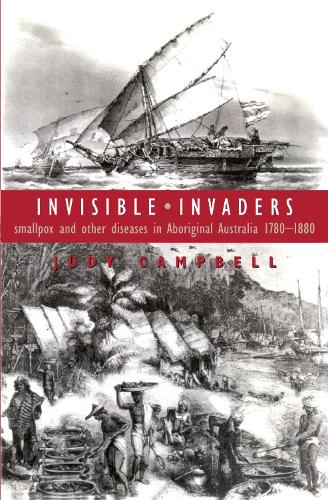
Invisible Invaders: Smallpox and other diseases in Aboriginal Australia 1780-1880
(Paperback)
Publishing Details
Invisible Invaders: Smallpox and other diseases in Aboriginal Australia 1780-1880
By (Author) Judy Campbell
Melbourne University Press
Melbourne University Press
3rd March 1998
Australia
Classifications
Tertiary Education
Non Fiction
History of medicine
Social and cultural anthropology
Ethnic studies / Ethnicity
Infectious and contagious diseases
614.5210994
Physical Properties
Paperback
296
Width 151mm, Height 227mm, Spine 22mm
382g
Description
An epidemic of smallpox among Aboriginal people around Sydney in 1789 puzzled the British, for there had been no cases on the ships of the First Fleet. Where, then, did the epidemic come from Judy Campbell argues that epidemics of smallpox among Australian Aboriginals preceded European settlement. She believes they originated in regular visits to the northern coast of Australia by Macassan fishermen from southern Sulawesi and nearby islands. The fishermen visited during the monsoon and traded with local people, who then resumed their travels into the interior, carrying smallpox with them. Invisible Invaders uses hitherto unpublished material from 19th century archives about indigenous and introduced diseases. Judy Campbell's brilliant and original analysis challenges old assumptions and assumes special importance today.
Reviews
"This is a study of international importance. Judith Campbell has produced the most scientifically informed and comprehensively researched work we have yet seen on the role of Old World diseases in the destruction of the indigenous peoples of Australia. Dr Janet McCalman Centre for the Study of Health and Society, University of Melbourne
Author Bio
Judy Campbell was educated at the University of Melbourne. After travelling in the United States and Mexico, where smallpox destroyed the Aztec Empire, she taught in the Department of History at the Australian National University. During that period she researched and began writing about Aboriginal smallpox, and has since continued this work privately.
